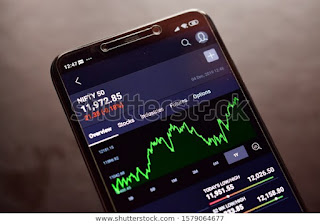Future&Options In Stock Market For Beginners.
Future and Options :
Futures and Options are derivatives. What is Derivative? It is a financial instrument such as bonds, shares, etc. Derivatives is a financial instrument which derives its value from underlying assets.
For example, stock derivative future TCS derived from its underlying asset TCS stocks in the cash market. Stock derivative TCS future increases when its current stock value of TCS increases and vice versa. So stock of TCS is the underlying assets and stock of TCS future is its derivative. So derivative is increased when underlying stock value increases and derivative is decreased when underlying stock value is decreased.
So derivative would be index derivative such as nifty, bank nifty; commodity derivative such as gold, silver, wheat, etc; currency derivative such as INR, USD, etc.
Types of Derivatives :
There are four types of derivatives
Future
Options
Forward
Swaps.
In stock market forward and swaps are not part of market trading, so we can trade in futures and options.
Why Derivatives ?
Derivatives are used for two purposes: one is "hedging" and another is "speculation".
Primary intention of speculation is to earn profit. Speculation means prediction if i feel the market will go up then i will buy the future of the index or stocks or if i feel the market goes down i will short sell the future of index or stock. Short selling means selling the future of a stock or index first then buying it when it comes down. For example if I sell nifty at 11000 and I feel that it goes down to 9500, when the nifty comes to 9500 I will buy it and book my profit.
Primary intention of Hedging is to reduce loss.For example i bought 500 quantities of Reliance stocks at 1000RS. But the market is going down because of some reasons. I get panic so in this case I can sell the future of reliance stock at current rate and hedge the position means if the market comes down i have loss in 500 stocks in reliance but at same time i have profit in RELIANCE future. So, my loss gets reduced.
Futures :
Obligate the parties => compulsion to owner the contract who is buyer or seller when enter in contract
To transact an asset => buy or sell asset which is stock, index, commodity or currency
At predetermined future date and price => every future has an expiry (only future has expiry, stocks doesn't have expiry). We have three expiries of futures asset such as near month expiry, next month expiry and far month expiry. For example this is a september month so we have september month expiry, october month expiry and november month expiry. So if september month expiry finishes then we will have december month expiry. It means coming next month added as expiry. Future expires on the last Thursday of the month. If Thursday is a holiday it will expire on Wednesday.
Image shows the market window for the nifty index future. Its type is Index futures, symbol nifty, expiry date 30AUG2018. Lot size is 75 and market rate is 11,484.90. It means you have to buy a minimum 75 shares of nifty that is 1lot.
Hope this information helps you for understanding the concept of the future, about options we discuss in the next blog on stock market. Thanks.






Comments
Post a Comment